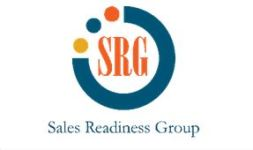ATD Blog
How to Scale a High-Performing SaaS Sales Team
Thu Apr 29 2021

The most remarkable trend in software technology during the 20 years since Salesforce.com has been corporations’ adoption of Software as a Service (SaaS) applications. Employees use various SaaS applications daily to more efficiently manage their accounting, human resource, marketing, and sales functions.
As an example, a typical sales professional may rely on six or more SaaS applications, including:
Email (such as Outlook or Gmail)
Business applications (for example, Word, Excel, or PowerPoint)
CRMs (including Salesforce or Microsoft Dynamics)
Sales engagement (such as Outreach or SalesLoft)
Virtual meeting platforms (for example, Zoom, Skype, or GoToMeeting)
Team messaging platforms (such as Slack or Chatter)
This widespread adoption of SaaS applications has led to sky-high valuations of SaaS companies. While most companies strive for a five- to 10-percent growth rate, SaaS businesses must grow faster to maintain their lofty valuations.
Pre-IPO SaaS companies are held to ARR (annual recurring revenue) growth rates of more than 100 percent, in many cases. The expected annual growth rate for SaaS companies that have recently gone public exceeds 50 percent. Even the largest SaaS companies (including Salesforce, Workday, and LogMeIn all have annual revenues above $1 billion) are still expected to post double-digit sales growth.
These hyper-growth environments put extreme pressure on sales organizations hiring, onboarding, training, coaching, and managing their sales teams. Also, SaaS businesses typically have highly specialized sales roles that focus on specific business objectives. While the actual titles may vary, a typical SaaS company will have sales roles that include:
Business development representatives (BDR) who identify and qualify new customers and opportunities
Account executives who sell into qualified (or what are perceived to be qualified) opportunities
Account managers who supervise large or strategic account relationships with a focus on growth within the account
Customer success managers who place emphasis on renewals and upgrades
Sales engineers who focus on aligning solutions with “use cases” (presale) and implementation (post-sale)
While growing and developing talent is critical for each of the above-listed functions, the most significant challenge typically falls on the frontline sales managers. This is because accelerated growth rates result in the promotion of top sales performers into sales management roles.
While these individuals have instant credibility based on their sales success, they have little to no sales management experience and, as such, struggle with this transition.
The importance of frontline management was recently highlighted in an article by Sam Walker in the Wall Street Journal, which cited a Gallup study noting the compelling positive impact quality management has on employee productivity and engagement.
When it comes to sales management, the need for better managers is acute because these managers are responsible for these essential functions that affect sales results:
Hiring. It’s always easier when you have the right people on your team.
Performance management. This creates a culture of accountability around sales behaviors and results.
Pipeline management. This provides opportunity management and forecast accuracy.
Sales coaching. This style is personalized coaching to improve selling skills.
Sales leadership. This style maintains a positive, highly engaged team.
The sheer number of priorities at SaaS companies often leaves sales managers trapped in a daily grind of focusing on urgent tasks, attending meetings, and submitting reports instead of training managers to unleash the full power of their sales teams.
The good news is that sales managers can learn to transcend the daily grind by learning, applying, and adopting sales management skills and techniques. This is especially true at SaaS companies where managers are expected to deliver highly ambitious sales results.
By adopting a program that provides the manager with the knowledge, skills, and tools to be successful, the organization can help new sales managers transition to becoming a high-performing sales manager much more rapidly and with better results.

